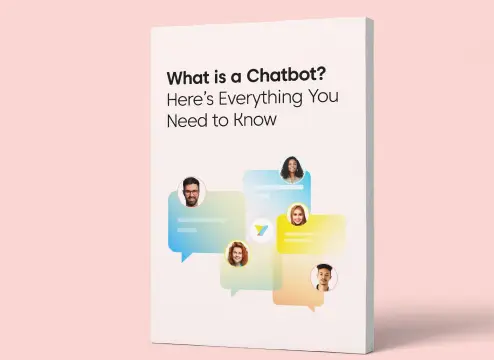Until recently, it was mandatory to receive Whatsapp opt-in via 3rd party platform, but not anymore. As of July 19, 2020, WhatsApp is updating its WhatsApp Opt-in policy for business initiated messages through WhatsApp Business API. According to this new policy, opt-in via WhatsApp and IVR (Interactive Voice Response) is acceptable.
Key Changes in the Opt-in policy:
- No longer a 3rd party platform is mandatory for obtaining opt-in.
- Opt-in permission has to be obtained in-line and contextually during the relevant user flows
- A visual element (e.g. a checkbox) next to the WhatsApp name and logo, with adjacent language stating the type of information to be messaged.
- Providing the ability to edit the WhatsApp number used for the opt-in
Businesses can send an opt-in message through WhatsApp by complying with the following rules:
- A clear message should be sent to the customer stating that they are accepting to opt-in to receive messages on WhatsApp.
- Stating the business name.
- Follow all applicable laws.
Two new ways to get WhatsApp Opt-in
WhatsApp opt-in as we know is the brand’s way of asking for the customer’s consent for sending messages/notification over WhatsApp. Till now brands had to rely on 3rd party platforms for getting consent, but not anymore.
Introducing Opt-in over WhatsApp and IVR. Let’s have a look
1. Opt-in Over WhatsApp
Businesses can send a message on WhatsApp asking if the customer would like to receive a message on WhatsApp. If the customer replies YES, opt-in is considered received.
WhatsApp Opt-in over WhatsApp
Benefits of having opt-in on WhatsApp Chatbot
- No separate Landing Page Required: Before, it was mandatory to have a landing page for messaging on WhatsApp advertisements. Not anymore! You can directly message your customers asking for Opt-in
- Time Saver: Removing the cumbersome process of going through different links for opting in and then being redirected to WhatsApp business, would help your customer save a lot of time
- Single Platform for messaging and getting Opt-in: No more spending on different platforms for getting opt-in. Just message the user on WhatsApp, and get in Opt-in.
- More options: Businesses can send now opt-in over 2 more mediums combined with the existing ways.
2. Opt-in Over IVR
Business can IVR blast such as, “If you would like to receive account update on WhatsApp, please press 1 otherwise press 2”.
If the customer presses 1, we consider it as an opt-in.
Benefits of having WhatsApp opt-in over IVR
- No Landing Page Required: Because of introducing IVR, developers don’t have to waste time in creating a landing page asking for Opt-in. And why create a landing page, when it can be done over a call.
- Time Saver: Users don’t have to go through multiple links for getting redirected to WhatsApp, this would save not just users time but also developers.
- Higher Call Pickup rate: Most of the time we usually pick our calls, even if we delay seeing messages, brands can leverage this for IVR calls
How to Opt-out?
Opt-out on WhatsApp
Businesses need to provide clear steps for users to opt-out now that the opt-in has become easier. This would ensure quality messaging in WhatsApp and remove spamming. In case the users say no in the above scenario, an email confirmation stating the user has opted out from messaging. Another way is to provide opt-out is through WhatsApp text messaging.
Even though WhatsApp has made it easier for enterprises to get opt-in, but still they urge businesses to send out clear opt-in messages showcasing the type of messages and business’s name to help customers. Also, easy steps should be provided in case the business wants to opt-out from receiving any messages.
















